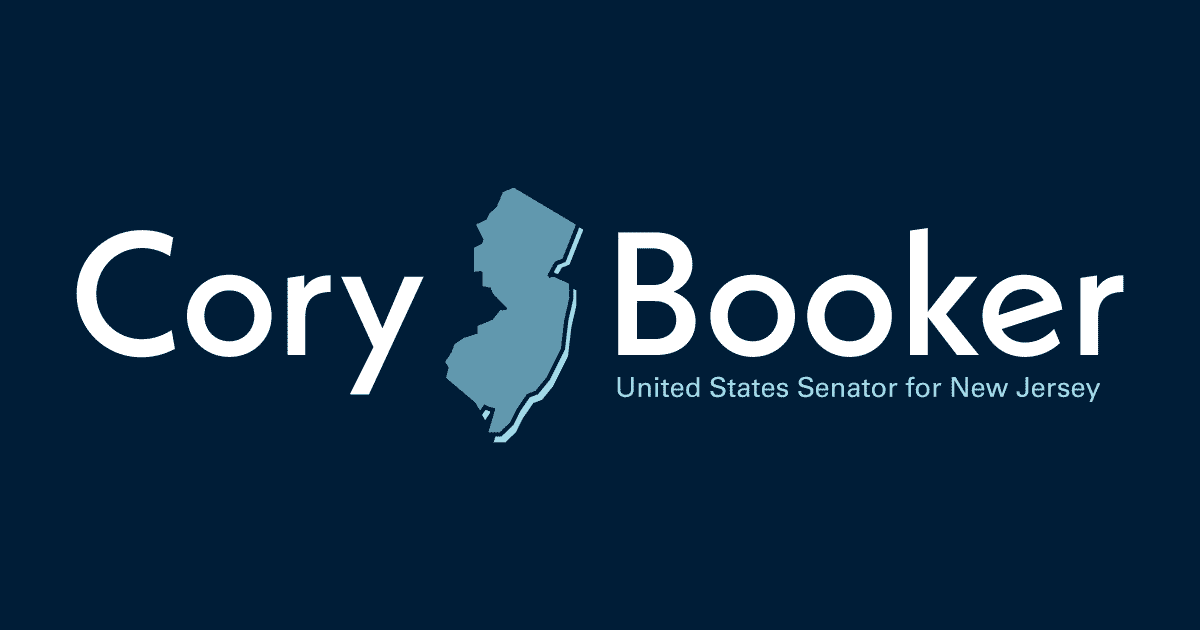Source: United States Senator for New Jersey Cory Booker
WASHINGTON, D.C. – U.S. Senators Cory Booker (D-N.J.) and Raphael Warnock (D-GA) urged regulators to set a temporary moratorium on overdraft and nonsufficient fund fees and urged the CEOs of the ten banks generating the most revenue from these fees to waive them for their customers.
The Senators’ action comes after the failures of Silicon Valley Bank (SVB) and Signature Bank this month, which led to disruptions across the financial sector. The Senators noted that associated delayed payments and payroll processing could lead to further financial distress for Americans impacted by the closures, who may incur more than $100 a day in low account balance fees or up to $175 a day in overdraft fees.
“We write to urge you to provide relief for American consumers that are facing financial distress due to the disruption in payments by their financial institutions and payroll processors,” wrote Senators Booker and Warnock in letters to Federal Reserve System Chair Jerome Powell, National Credit Union Administration Chairman Todd Harper, Office of the Comptroller of the Currency Acting Comptroller of the Currency Michael Hsu, FDIC Chairman Martin Gruenberg, and CEOs of 10 major banks. “In particular, we urge you to place a brief moratorium—while the disruption in payments is resolved—on overdraft and nonsufficient fund fees for those that may have incurred these costly fees at no fault of their own.”
The Senators also highlighted the impact of overdraft and nonsufficient fees on consumers:
“Disruptions across the banking industry this month rattled consumers and threw into jeopardy the paychecks of millions of American workers. Across the country, people whose paydays fell between March 10 and March 13 were unable to receive or deposit checks from payroll providers banking with SVB and Signature Bank. On the Friday following the collapse of SVB, online marketplace Etsy notified its 7.5 million merchants that they may face payment delays of ‘several business days’ because it relied on SVB payment processing. In an unrelated technical problem on Friday, a nationwide glitch left Wells Fargo customers with missing payments and incorrect balances. We are just now learning whether some of those paydays that were scheduled for March 15 were similarly affected: as you well know, America’s slow payment system means that for money to be available to a consumer’s bank on the 15th, it must leave the company’s bank several days earlier. These delays will disproportionately harm the impacted customers who are part of the sixty-four percent of Americans living paycheck-to-paycheck, who are often ‘minutes to hours away from having the money necessary to cover’ expenses that lead to overdraft nonsufficient fund fees,” continued the Senators.
“Overdraft and nonsufficient fund practices have overwhelmingly targeted these Americans, costing vulnerable families $15.5 billion annually prior to the pandemic. Following efforts by the Biden Administration, the Consumer Financial Protection Bureau, and Congress to highlight the negative impacts of these practices on American consumers, several banks changed their policies to reduce their reliance on overdraft, but millions of Americans can still face charges of up to $111 a day for low account balances or up to $175 a day on overdraft fees. These fees compound the difficult financial situation customers find themselves in, particularly when their lack of funds is due to an unprecedented, unexpected delay.”
The 10 banks receiving Booker and Warnock’s letter generated the largest amount of revenue from overdraft / insufficient funds fees in the US in 2021.
The letter to banking regulators can be found here.
The letter to PNC Bank can be found here.
The letter to Regions Financial Corporation can be found here.
The letter to Bank of America can be found here.
The letter to TD Bank can be found here.
The letter to Citizens Bank can be found here.
The letter to Truist can be found here.
The letter to Huntington National Bank can be found here.
The letter to US Bank can be found here.
The letter to JP Morgan Chase can be found here.
The letter to Wells Fargo can be found here.
Booker has targeted overdraft fees charged to consumers by banks for years. Booker introduced the Stop Overdraft Profiteering Act in 2018 and again in 2021, which would ban overdraft fees on debit card transactions and ATM withdrawals and limit fees placed for checks and recurring payments. In 2020, Booker filed legislation that would ban exploitative bank overdraft fees for the duration of the Coronavirus public health emergency. Also in 2020, Booker sent a letter to more than a dozen bank CEOs urging them to temporarily ban charging customers burdensome bank overdraft fees during the coronavirus emergency. And in 2017, Booker sought to make public more information about banks overdraft fee practices.
